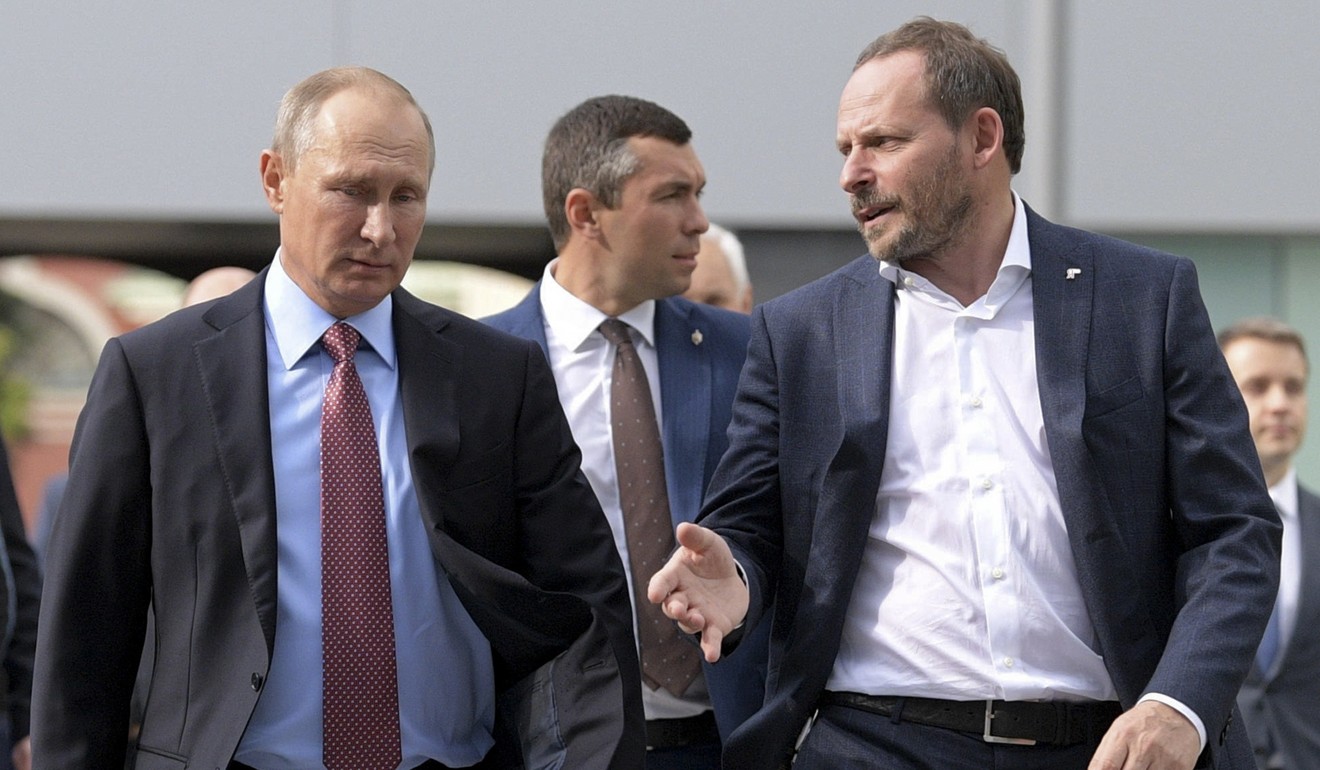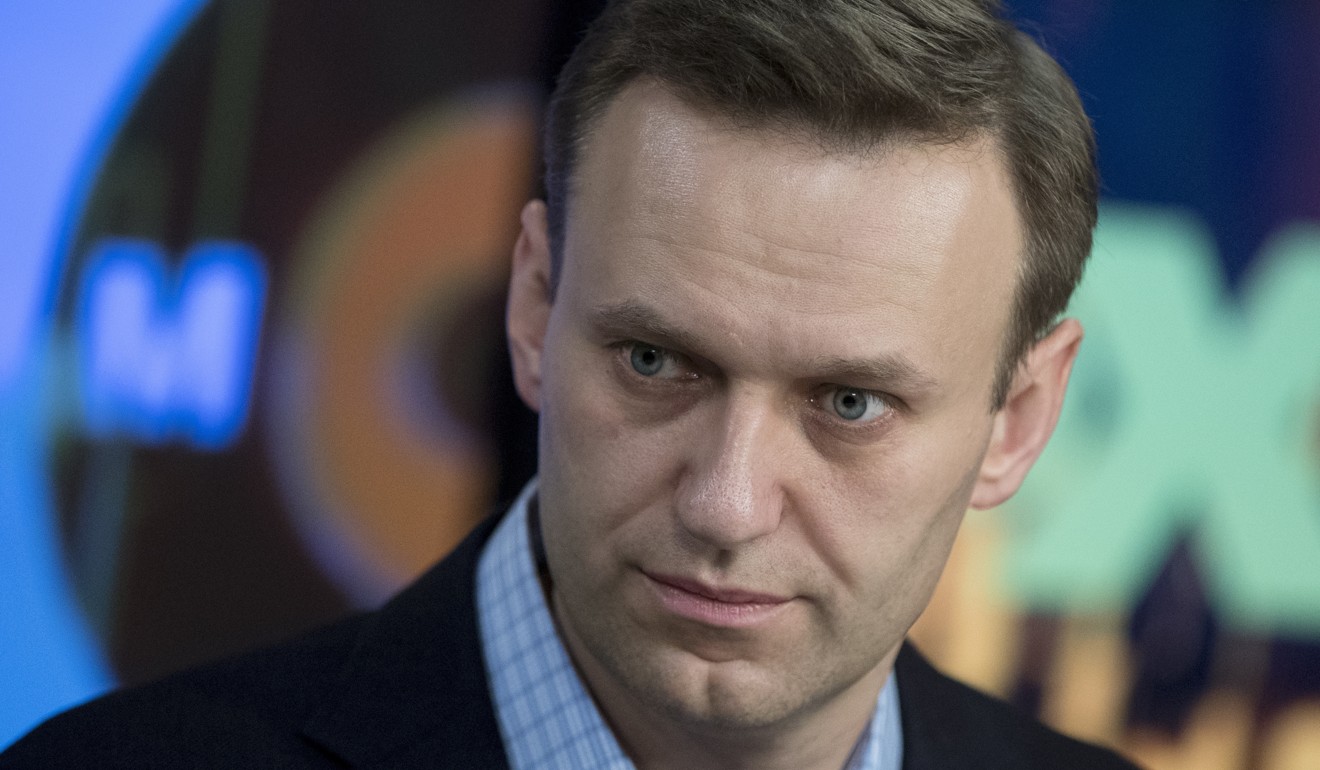
New sanctions against Russia kick in but US elects to punish nobody
State Department officials said the threat of sanctions had been deterrent enough, and that ‘sanctions on specific entities or individuals will not need to be imposed’
The Trump administration late on Monday released a long-awaited list of 114 Russian politicians and 96 “oligarchs” who have flourished under President Vladimir Putin, fulfilling a demand by Congress that the US punish Moscow for interfering in the 2016 US election.
Yet the administration paired that move with a surprising announcement that it would not punish anybody – for now – under new sanctions retaliating for the election meddling. Some US lawmakers accused President Donald Trump of giving Russia a free pass, fuelling further questions about whether the president is unwilling to confront America’s cold war foe.
Known informally as the “Putin list”, the seven-page unclassified document is a who’s who of politically connected elite Russians. The idea, as envisioned by Congress, is to name-and-shame those believed to be benefiting from Putin’s tenure as the United States works to isolate his government diplomatically and economically.

Being on the list does not trigger any US sanctions on the individuals, although more than a dozen are already targeted under earlier sanctions.
Prime Minister Dmitry Medvedev is among the 114 senior political figures in Russia’s government who made the list, along with 42 of Putin’s aides, cabinet ministers such as Foreign Minister Sergey Lavrov, and top officials in Russia’s leading spy agencies, the FSB and GRU. The chiefs of major state-owned companies, including energy giant Rosneft and Sberbank, are also on the list.
So are 96 wealthy Russians deemed “oligarchs” by the Treasury Department, which said each is believed to have assets totalling US$1 billion or more. Some are the most famous of wealthy Russians, among them tycoons Roman Abramovich and Mikhail Prokhorov, who challenged Putin in the 2012 election. Aluminium magnate Oleg Deripaska, a figure in the Russia investigation over his ties to former Trump campaign chairman Paul Manafort, is included.
The Trump administration had until Monday to issue the list under a law passed last year. After declining to answer questions about it throughout the day on Monday, the Treasury Department released it with little fanfare 12 minutes before midnight.
Foreign governments have abandoned planned or announced purchases of several billion dollars in Russian defence acquisitions
Even more names, including those of less-senior politicians or businesspeople worth less than US$1 billion, are on a classified version of the list being provided to Congress, officials said. Drawing on US intelligence, Treasury also finalised a list of at least partially state-owned Russian firms, but that list was also classified.
In Moscow, President Putin said the list was a “hostile step”, but joked that he was “offended” the US had not included him on the list.
Meanwhile others called the list “quite unprecedented”.
“It’s not the first day that we live with quite aggressive comments made towards us, so we should not give into emotions,” said Kremlin spokesman Dmitry Peskov, who is on the list himself.
But other Russian officials expressed anger and disappointment.

“We try to explain that sanctions lead us nowhere. We are not afraid of sanctions,” the Russian ambassador to the US, Anatoly Antonov, told Russia 24 television.
“Officially, we have relations. But the inclusion on this list of virtual sanctions of the entire elite ruling class of our country means that our relations are truly breaking up,” said Senator Vladimir Djabarov, deputy chairman of the foreign relations committee of the upper house of the Russian parliament, to the news agency RIA Novosti.
How do you deter an attack that happened two years ago, and another that is already underway?
He said the list amounted to “gross interference” in Russian affairs.
Under the same law that authorised the list, the government was required to slap sanctions on anyone doing “significant” business with people linked to Russia’s defence and intelligence agencies, using a blacklist the US released in October. But the administration decided it did not need to penalise anyone, even though several countries have had multibillion-dollar arms deals with Russia in the works.
State Department officials said the threat of sanctions had been deterrent enough, and that “sanctions on specific entities or individuals will not need to be imposed.”
“We estimate that foreign governments have abandoned planned or announced purchases of several billion dollars in Russian defence acquisitions,” said State Department spokeswoman Heather Nauert. She did not provide evidence or cite any examples.
Companies or foreign governments that had been doing business with blacklisted Russian entities had been given a three-month grace period to extricate themselves from transactions, starting in October when the blacklist was published and ending Monday. But only those engaged in “significant transactions” are to be punished, and the United States has never defined that term or given a dollar figure. That ambiguity has made it impossible for the public to know exactly what is and isn’t permissible.
Late last year, Secretary of State Rex Tillerson said one reason the US was proceeding cautiously was that major US allies have much at stake. Turkey, a Nato ally, has a deal to buy the S-400, Russia’s most advanced air defence missile system. And key security partner Saudi Arabia recently struck an array of
deals with Moscow, including contracts for weapons. It was unclear whether either country had since abandoned those deals to avoid running afoul of the US sanctions.
New York Rep. Eliot Engel, the top Democrat on the House Foreign Affairs Committee, lambasted the move to punish no one, saying he was “fed up” and that Trump’s administration had chosen to “let Russia off the hook yet again.” He dismissed the State Department’s claim that “the mere threat of sanctions” would stop Moscow from further meddling in America’s elections.
“How do you deter an attack that happened two years ago, and another that is already underway?” Engel said. “It just doesn’t make sense.”
Additional reporting by Agence France-Presse

